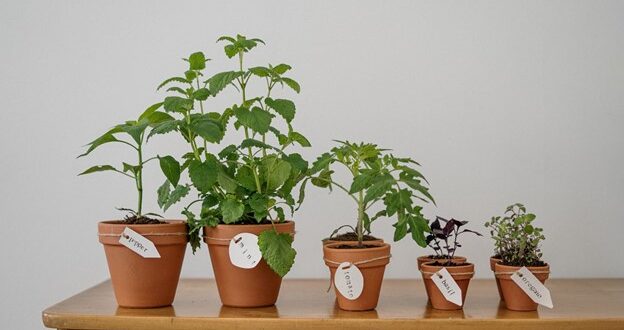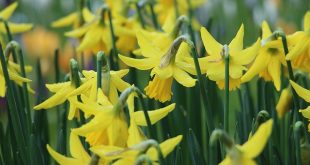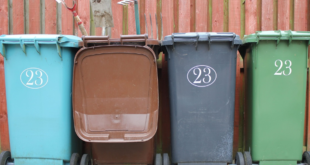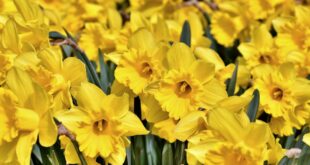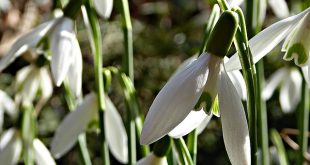What exactly is the distinction between herbs and spices?
Herbs and spices are not the same, despite the fact that they both come from plants. Rosemary, thyme, sage, and oregano are examples of herbs with leaves. Spices such as cinnamon, ginger, turmeric, and pepper are made from the plant’s other parts, such as the roots, bark, flowers, berries, or seeds, which are usually dried and ground.
Herbs are the best way to season a dish without having to use salt or other ingredients that may cause health issues. Also, herbs are known to make your dishes better and some are staples in the best cuisines like Italian, Mexican or French. The convenience of having them available growing in the kitchen outweighs having to drive anywhere to get them or increase your expenses and is considered as a way to make your home more sustainable.
You don’t need to have a garden to grow herbs at home, there are certain herbs that can easily be grown indoors in your kitchen or on the windowsill. You just need to know what the plant needs to flourish and to maintain them.
Growing your own herbs indoors and mixing your own spices with them is a fun hobby that pays off big time and indoor-grown plants are easy to transport when you move. Store-bought herbs, spices, and blends can be costly, particularly if they’re organic — and if they aren’t, they could contain pesticides and other potentially harmful chemicals.
Which herbs are the easiest to grow?
You’ll want to pick herbs that are small in size because space within your home is likely limited. Look for herb species that are compact or dwarf in size and have a restricted growth habit. Rosemary, thyme, sage, and oregano are great examples of easy to grow herbs.
Now…pots or containers?
Select the pots or containers in which you want to cultivate your herbs, you can also create a planter box which is a great option without having to install a full-fledged garden. Any pot will suffice for growing herbs indoors, but make sure the bottoms have sufficient drainage holes.
Indoor herb gardens work best in terra cotta containers, but any container will do as long as it drains well.
Requirements to grow and maintain your herb garden
Enough Sunshine
The more light your indoor garden receives, the better it will do.Herbs need six to eight hours of direct sunlight a day, and the more sunlight they get, the better their flavor. Growing herbs indoors is best done in a bright, sunny, south-facing room.
The temperature that’s just perfect
Maintain a temperature of 65 to 70 degrees Fahrenheit in your rising area during the day and 55 to 60 degrees at night. Make sure your herbs aren’t chilled by drafts during the winter. Allowing the plants to touch the window in the summer will cause them to wilt.
Watering
Watering should be done infrequently but thoroughly. Allow your herb pots’ soil to dry out between waterings. Place your finger two inches below the soil’s surface. It’s time to drink if it’s dry. The only exception is rosemary, which should not be watered until the soil is fully dry. Slowly pour in the water and don’t forget to save water as water conservation is very important nowadays.
Drainage
To prevent excess water from remaining in the pot, make sure it has enough drainage holes on the rim. Use a potting mix that allows for maximum drainage.Place a saucer under each pot to catch any spilled water.
Proper air circulation
Good air circulation around your plants helps prevent the spread of disease. Don’t crowd them in too tightly, and rearrange them occasionally.
Fertilization
Fertilization is the process of adding nutrients to the soil. Fertilize your herbs with a low dose of water-soluble fertilizer every two weeks. Don’t over-fertilize your plants, as this will damage them.
Controlling pests
Spider mites, scales, and young whiteflies are among the insect pests that can decimate your herb garden. Pick off any insect pests you see on your plants and inspect the plant for more. Spray the plant with insecticidal soap or a gallon of water containing a tablespoon of mild dish soap dissolved in it. Follow the insecticidal soap’s instructions on the package. Spray the plants once a week for the DIY procedure, but only if insects are visible.
A growing hobby?
You may enjoy growing herbs so much that you create a bigger operation every year. You may even need to consider a small, indoor greenhouse at some point, which opens enormous possibilities for growing more exotic plants to experiment with.
 Gardeners Club The Gardeners Club is a free to join online club for everyone with an interest in gardening and gardens.
Gardeners Club The Gardeners Club is a free to join online club for everyone with an interest in gardening and gardens.
